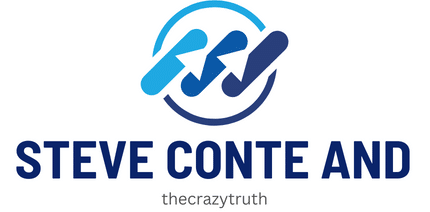What’s the Best Diet for a Sphynx Cat Prone to Hypertrophic Cardiomyopathy?

Whether you’re a lifelong cat lover or new to the world of feline companions, the health and well-being of your beloved pet is always a top priority. For owners of the unique sphynx cat breed, understanding and managing health conditions like hypertrophic cardiomyopathy (HCM) can be a crucial part of their pet care journey. Among the many strategies to tackle this, diet plays a significant role. In this article, we’ll delve into the best diet for a sphynx cat prone to HCM, all backed by solid veterinary advice and research.
Understanding Hypertrophic Cardiomyopathy in Sphynx Cats
Before we delve into the diet specifics, it’s crucial to understand what hypertrophic cardiomyopathy is and why sphynx cats are more susceptible. HCM is a form of heart disease that primarily affects the muscle of the left ventricle in the heart. This condition can lead to heart failure and other complications if not managed effectively.
En parallèle : How to Train a Husky to Pull a Sled in Competitive Mushering?
Sphynx cats, with their distinctive hairless skin and large ears, are genetically predisposed to develop HCM. Being aware of this potential health risk will help you, as responsible pet owners, to make informed decisions about your cat’s diet and lifestyle.
Best Food Choices for Sphynx Cats with HCM
Although there’s no specific "HCM diet", some food choices can help manage this condition and improve your cat’s overall health. The primary aim is to ensure the heart muscle receives the right nutrients it needs to function effectively, without putting unnecessary stress on it.
A lire aussi : How to Create a Daily Enrichment Schedule for a Senior Dog with Limited Mobility?
High-quality protein should be the mainstay of your sphynx cat’s diet. Protein provides the essential amino acids your cat’s body needs to repair and build tissues, including the heart muscle. Look for pet foods that list real meat (like chicken or fish) as the first ingredient.
Cats also need taurine, an essential amino acid, to maintain heart function. Unlike humans and some other animals, cats can’t make taurine in their bodies and must get it from their food.
Omega-3 fatty acids are another crucial component of a heart-healthy diet. These fats can help reduce inflammation and improve blood flow, both of which are beneficial for a cat with HCM.
Lastly, the food should be low in sodium. High-sodium foods can cause your cat’s body to retain more water, increasing the load on the heart.
Monitoring Your Cat’s Weight
Keeping your sphynx cat at a healthy weight is key when managing HCM. Excess weight can put additional stress on your cat’s heart, exacerbating the disease.
Avoid free-feeding and instead, provide measured meals to control your cat’s calorie intake. It’s essential to consult with your vet to determine your cat’s ideal weight and how many calories they need each day.
Regular weight checks, either at home or during veterinary visits, will help you monitor any changes and adjust your cat’s diet accordingly.
Regular Veterinary Check-ups
Even with the best diet and care, regular veterinary check-ups are vital for sphynx cats prone to HCM. Your vet will monitor your cat’s heart health, check for any signs of heart failure, and adjust any medications or dietary recommendations as necessary.
It’s also a good idea to have your cat’s blood pressure checked regularly. High blood pressure can increase the heart’s workload and make HCM worse. Your vet can diagnose and treat high blood pressure, improving your cat’s overall heart health.
The Role of Hydration
Hydration is often overlooked but is a fundamental aspect of managing heart disease in cats. Adequate hydration helps maintain blood volume and pressure, making it easier for the heart to pump blood throughout the body.
If your sphynx cat isn’t a big water drinker, consider incorporating wet food into their diet, which can be a good source of moisture. You can also try providing a cat drinking fountain, as many cats prefer flowing water to a static water bowl.
In conclusion, caring for a sphynx cat prone to HCM involves more than just providing the right food. It’s about creating a comprehensive care plan that includes regular veterinary check-ups, maintaining a healthy weight, and ensuring your cat stays well-hydrated. With these strategies in place, your sphynx cat can enjoy a fulfilling life despite their heart condition.
Importance of Regular Exercise
In addition to diet and weight management, regular exercise plays a crucial role in managing heart conditions like HCM in sphynx cats. Exercise helps to strengthen the heart muscle, improve blood circulation, and reduce the risk of obesity that can exacerbate heart disease.
Engage your sphynx cat in light to moderate activities such as interactive play sessions or using interactive toys. Remember, it’s not about pushing your cat to the limit but about encouraging regular, gentle activity that can keep them active and engaged without putting undue stress on their heart. Your interaction and playtime with your cat can also strengthen your bond with them, promoting a happy and healthy emotional state.
However, it’s vital to remember that every sphynx cat is unique, and what works for one might not work for another. Always consider your cat’s individual health status, age, and preferences when introducing new types of exercises. And most importantly, always consult with your vet before starting any new exercise regimen.
Watching for Clinical Signs
As a sphynx cat owner, you should be vigilant for clinical signs of worsening HCM. Signs may include rapid breathing, difficulty in breathing, loss of appetite, lethargy, fainting, and sudden paralysis of the hind legs. In severe cases, congestive heart failure could occur.
Early detection of these signs is essential for prompt intervention and treatment. Regular check-ups with your vet can help monitor your cat’s health and detect any changes in the early stages.
Your vet may also recommend diagnostic tests like echocardiograms to assess the structure and function of your cat’s heart and the left ventricle in particular. Blood tests may also be conducted to check for any associated complications like high blood pressure or kidney diseases.
Conclusion
Caring for a sphynx cat prone to hypertrophic cardiomyopathy goes beyond just providing a specialized diet. It’s a holistic approach that involves regular veterinary check-ups, maintaining a healthy weight, ensuring proper hydration, encouraging regular exercise, and being vigilant for clinical signs of disease progression.
Incorporating these strategies can significantly improve your cat’s quality of life and manage the symptoms of HCM. Remember, your vet is your best resource for guiding you through your sphynx cat’s health journey. Regular communication and consultations with them can help you make the best decisions for your beloved sphynx cat.
Every moment counts when dealing with a condition like hypertrophic cardiomyopathy. But with love, care, and the right strategies, your sphynx cat can enjoy a fulfilling and happy life.
